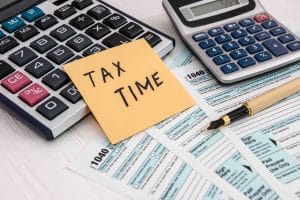
Can Tax Debt Be Discharged in Bankruptcy?
Debtors can wipe out certain tax debt in bankruptcy if they meet specific criteria. To qualify for this kind of relief, the debtor must owe either state or federal income taxes. The debtor must not have submitted a fraudulent return or “willfully attempted” to evade or defeat tax during that period. The tax debt must be three years old or more.

The taxpayer must have submitted a tax return not less than two years before officially declaring bankruptcy. The tax debt must meet the “240-day rule.” In other words, the IRS must have assessed the tax debt 240 or more days before the taxpayer files bankruptcy. The IRS can extend this time limit if the agency had an offer in compromise with the taxpayer or the taxpayer had filed for bankruptcy in the past. The taxpayer must also show that he or she lacks the means to pay taxes and that there is no likelihood of the financial status changing soon.
What Types of Taxes Can Be Discharged in Bankruptcy?
A
Requesting for Tax Debt Discharge
The debtor should file a Motion for Discharge with the court and provide proof of meeting specific criteria. The burden is on the debtor to show to the court’s satisfaction that his or her failure to pay was not due to willful neglect. Instead, this should have been caused by circumstances beyond his or her control.
A
Eligibility for Chapter 7 bankruptcy?
Chapter 7 eligibility requires that an individual’s unsecured debts exceed the value of his or her assets. The debtor must also pass a means test. If the debtor fails the means test, he or she may still qualify. To qualify, however, the debtor must show that special circumstances prevent him or her from paying expenses. Such circumstances could include illness, the death of a crucial player in his or her finances, an injury, and other





